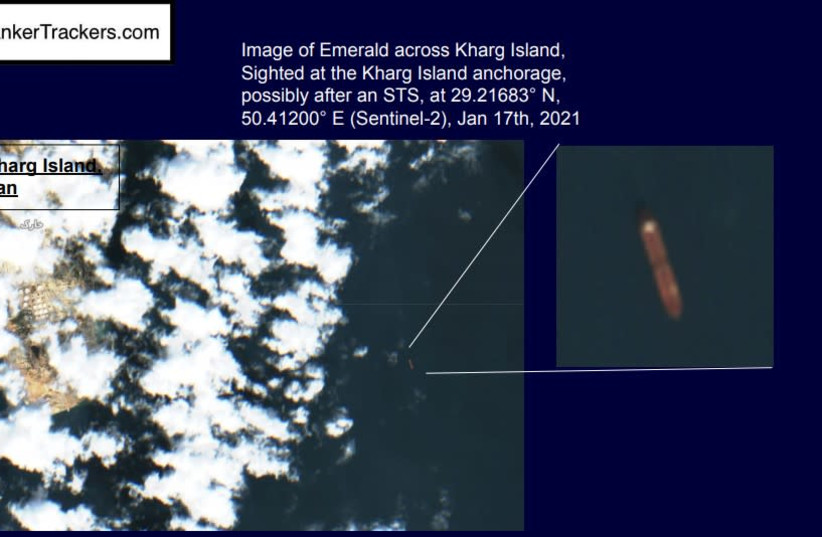Photographs of the vessel, which Israel has accused of ‘eco-terrorism’, show the ship anchored off the Iranian coast.
By ALEX WINSTON, LAHAV HARKOV MARCH 4, 2021

Israel has named Libyan-owned Emerald as the ship that caused a huge oil spill that severely damaged the coastline and its environment, in what it described as an act of “eco-terrorism.”
The Emerald was seen anchored off Iran’s Kharg Island on January 17, according to photographs released by the Environmental Protection Ministry on Thursday. The tar from the spillage reached Israel’s shores on February 17, causing immense damage and harm to the coastline, wildlife habitats and marine life, and polluting beaches.
The Emerald took on an estimated 112,000 tons of crude oil in Iran before encircling the Gulf and entering Egyptian waters and passing through the Suez Canal into the Mediterranean.
Despite the evidence, defense sources said that both the Mossad and the IDF were blindsided by Environmental Protection Minister Gila Gamliel’s accusation that Iran was behind the spill. The sources said they could not confirm the veracity of Gamliel’s claims, and that neither the IDF nor the Mossad had been involved in the investigation.
One of the photos released on Thursday shows the Emerald in Israel’s waters near Haifa, and two others show the oil slick in the Mediterranean moving closer to Israel’s shores.
Another shows the tanker in rendezvous with another ship west of Syria that had its transmitter turned off. The Emerald’s displacement was identified as reducing from 14.3 meters under the water line to 8.5 meters, which indicates that it unloaded its consignment to the other ship while at sea.
A further photo shows the Emerald unloading 750,000 barrels of Iranian oil to a tanker called Lotus, a Syrian ship flying an Iranian flag. The photographs were made public by TankerTrackers.com, an online service that tracks and reports shipments and storage of crude oil, and passed on to the Environmental Protection Ministry.
The Emerald turned off its automatic identification system (AIS), which transmits its location to other ships in the area, as it entered Egyptian waters. It turned its AIS on as it passed through the Suez Canal, and then off again as it approached Israel’s shores.
The ship remained within dozens of kilometers of Israel’s shores, inside Israeli waters for nearly a whole day, spilling large amounts of oil on February 1-2, with its AIS turned off.I
t then continued on to Syria, where it turned on its transmitter, and returned to Iran again turning off its AIS as it passed by Israel. The ship is currently in Iran.
